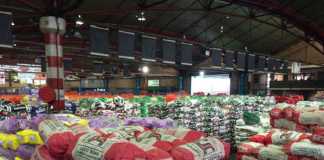
The trouble was that he did not always receive a good price there. If you use the market as a dumping ground, you will seldom get a high price.
Here’s why:
- You have not built buyer loyalty to your brand (name).
- You are inconsistent and clearly not offering the best quality.
- When you send lower-grade produce rejected by your main client to the market, the overall price is lowered. Your direct buyer uses that the next time he negotiates with you, and you end up accepting a lower price.
- When the market is oversupplied, buyers will stick to the brands they trust. The prices might not be that good because of the oversupply, but at least the produce will be sold. In contrast, the ‘dumping farmer’ is likely to receive a note for condemned produce that cannot be sold.
Quality all-important
Dumping surpluses on the market is an old ploy, but these days buyers won’t tolerate a farmer who is ‘playing’ the market. The market has become a battleground over quality – only the best get high prices. In this environment, buyers punish farmers who send inferior quality by offering a much-reduced price or simply not buying.
No farmer can afford to ‘play’ a market; there are too many competitive factors that mitigate against this outmoded method of marketing. Marketing fresh produce has become a serious business, because growing the produce is serious business.
Only a combination of quality, packaging, presentation and continuity will ensure success.
Play by the rules – and benefit
As I’ve said before, observe what successful farmers are doing. See how they supply a market. They do it properly and reap the rewards – as they deserve to.
It’s quite simple, really. The market punishes those who ‘break the rules’ and generously rewards those who supply ‘by the rules’.
Michael Cordes is an agricultural journalist, consultant, trainer and former farmer.












